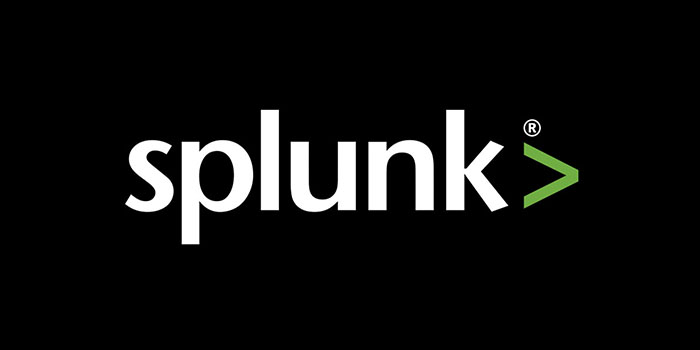In this article, we’re going to provide helpful information for Splunk applicants. You’ll find some basic information about Splunk and what it’s like to work at the company. After that, we’ll dive into some of the most common Splunk interview questions. We’ll give you an answer suggestion for each question on our list. Feel free to use these answer suggestions as a starting point for your own responses. We’ll wrap things up with some Splunk interview tips. Let’s get started!
Splunk Interview Questions and Answers (25+ Most Frequently asked)
About Splunk
Splunk is an American software company that creates tools for business owners to analyze data critical to their businesses. Their software quickly crunches data and presents figures that normally take a long time to gather. Because of this, Splunk’s product helps businesses scale and grow quicker.
At Splunk, you’ll be maintaining the software or helping to sell it to businesses around the world. You might also be involved with creating new features for the product. Splunk employees enjoy a benefits package that includes a 401k with company match, work from home opportunities, healthcare plans, paid maternity and paternity leave options, and vacation time. Professional development offerings and tuition assistance may also be available, depending on your role at Splunk.
Splunk Job Interview Questions & Answers
The following nine Splunk interview questions are some of the most frequently asked at the company. Prepare your answers well in advance by practicing them with a friend or family member. Practicing interview questions verbally is one of the most essential parts of interview preparation. Take each of these Splunk interview questions and draft an answer that is memorable, engaging, and unique.
1.) Software Engineer Interview Questions & Answers
Q1: “Why Splunk?”
A1: “As someone who was raised by a small business owner, I can honestly say that helping businesses understand their data is important to me. I wish Splunk had been around for my mom’s business as well. I’d feel good about contributing to software that allows businesses to reach their full potential. I wouldn’t get that kind of feeling working for Facebook or Twitter. It’s important to me to be contributing to something that’s making a positive impact on the world.”
Q2: “What experience do you have in the past that will be valuable to you in your role with us?”
A2: “As someone who has worked in management positions and development positions, I have a mixed skill set. As a developer, I’ve found it helpful that I understand to keep my coworkers motivated without coming off as though I believe I’m in charge. Having a positive attitude and a willingness to help others raises the morale of the entire team and encourages others to act similarly.”
Q3: “How do you deal with working on projects with tight deadlines?”
A3: “Breaking the project up into smaller chunks that are scheduled appropriately always helps make an overwhelming task much more manageable. If I’m working with a team on a large project, I’ll collaborate with them to get a project timeline mapped out and divide up the responsibilities.”
2.) Intern Interview Questions & Answers
Q1: “What motivates you to get work done?”
A1: “I work the best when I’m working on something I’m excited about or believe in.”
Q2: “What do you do when you don’t get along well with one of your teammates?”
A2: “I’m not the kind of person who has issues with any of my coworkers, because we’re all working toward the same goals. In the event that a coworker and I don’t see eye-to-eye, I’d try to talk it out with them to see if the situation was some kind of misunderstanding.”
Q3: “Have you ever failed in a previous role? How did you handle the situation?”
A3: “During my first developer position, I was afraid of jumping in when I had a solution to a problem. Mainly, I was doubting myself and wouldn’t allow myself to believe that I had an answer when no one else on my team did. Some of the first projects I worked on could have been finished a lot quicker if I wasn’t afraid to dive in and help. I’m no longer afraid to contribute because I know that all developers have their strengths, weaknesses, good days, and bad days.”
3.) Inside Sales Representative Interview Questions & Answers
Q1: “How do you prepare for a sales meeting?”
A1: “Before the meeting, I make sure that my presentation files are ready to go. Technical issues always seem unprofessional, especially in the tech industry. I’ll create an outline to give to all of the attendees so that they know what to expect and can follow along with the presentation. I like to keep everything short and to the point. People have short attention spans and want the facts up front.”
Q2: “Which of your accomplishments are you most proud of?”
A2: “My proudest moment was when I convinced my manager to rework our company’s lead generation strategy, placing social media marketing higher on the list of priorities. In early 2010, I saw that several social media platforms were gaining enormous traction. The company I worked for had an opportunity to get in on the ground floor of something big. By compiling a small presentation that dealt with the possibilities for our social media channels, I was able to convince the company to pursue social media more aggressively, which lead to an 18% increase in sales.”
Q3: “What are the main benefits a business can get from using Splunk?”
A3: “Splunk mainly saves time for businesses by providing the technology they need to analyze important data without having to hire someone to gather it. It visually maps out areas where the business is doing things right and where it should consider an alternative. Businesses can create more targeting strategies using Splunk in a fraction of the time that it would have taken them before Splunk.”
Splunk Job Interview Tips
Software Development interviewees should practice coding questions on Leetcode
Work through medium and hard Leetcode questions to have the best shot at acing your interview. You’ll also want to practice verbalizing how different concepts work in the languages that Splunk uses. Splunk interview questions normally involve Python, JavaScript, and CSS.
questions to have the best shot at acing your interview. You’ll also want to practice verbalizing how different concepts work in the languages that Splunk uses. Splunk interview questions normally involve Python, JavaScript, and CSS.
Be ready for a long interview process
A typical Splunk interview process includes up to nine interviews. Don’t get discouraged if you’re being asked to attend more and more interviews – this is normal as long as Splunk is seriously considering you as an applicant.
Get to know the product
If you haven’t already downloaded a trial of Splunk, what are you waiting for? Get your hands on a free trial, open the Splunk documentation , and start exploring their piece of software. You’ll want to be as familiar as possible with the product itself before your first interview. The more features you can become familiar with, the better. Splunk interview questions frequently involve your understanding of the product and how it functions.
, and start exploring their piece of software. You’ll want to be as familiar as possible with the product itself before your first interview. The more features you can become familiar with, the better. Splunk interview questions frequently involve your understanding of the product and how it functions.
Splunk Interview Process
The interview process at Splunk consists of two rounds – the first round consists of technical interviews conducted over the phone or Skype and the second round consists of behavioral interviews.
The candidate should prepare for both rounds well in advance as they are quite different from each other. The first round focuses on technical skills while the second round focuses on teamwork skills and soft skills like communication and leadership qualities.
The candidate will be asked questions about their previous experience with various technologies to assess their level of expertise in those fields.
By reading this job interview article, you will know the most common Q&A so that you can be prepared for your own upcoming interview.
You Might Also Be Interested in:
- The latest Lyft interview questions
 .
. - A fresh list of Informatica interview questions
 .
. - Other technical interview questions
 .
.
Final Word
If you’re thinking about applying to a role at Splunk, we hope you found this information helpful! To learn more about Splunk and what it’s like to work there, browse through their Splunk Glassdoor profile or read the Splunk blog . Comment below if you’ve already attended an interview – we’d love to know what Splunk interview questions you found to be the most difficult.
. Comment below if you’ve already attended an interview – we’d love to know what Splunk interview questions you found to be the most difficult.

